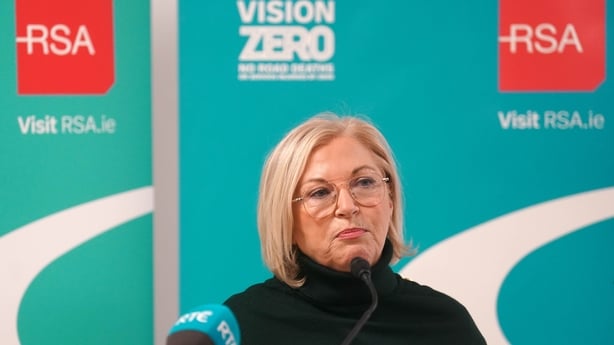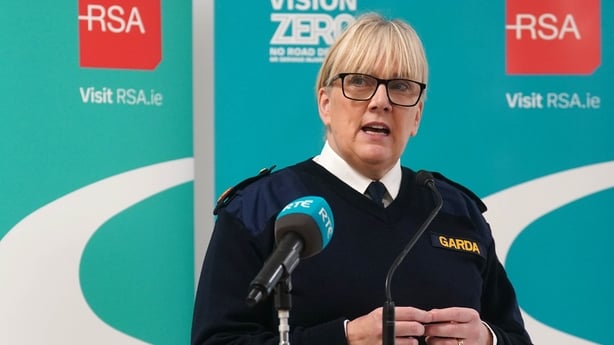Myles O'Brien was left paralysed below the neck after a motorcycle accident in May this year.
Mr O’Brien, 60, is recovering in the National Rehabilitation Hospital in Dublin and has not been home to his family in Westport, Co Mayo, since the crash.
He had been riding motorbikes for a year-and-a-half before the crash, and puts what happened to him down to a mixture of inexperience, speed and bad luck.
"I skidded, I braked, I pulled a brake but hit an accelerator by mistake and I went into a wall," he said.
Mr O’Brien’s spine was severed and he now has a T1 injury, meaning he is paralysed from the neck down.
He still has the use of his arms and upper body.
"It's completely life-altering. I'll never walk again. I'll always be wheelchair bound," he added.
Mr O'Brien said his injuries have been devastating for him and his family too.
'Slow down, be careful'
He said: "The responsibility on the rest of my family is something I never wished to put on them, on my wife and kids. It takes time to get used to, but I am dealing with it.
"I know I have to rebuild my life but with all the help I'm getting from here, I can see myself successfully doing that."
As he continues his recovery and rehabilitation, Mr O’Brien wanted to give his own road safety message.
"Slow down, be careful. Any accident you affect so many people, you don't realise," he said.
A total of 172 people have died on Irish roads so far this year.
But for every person killed, ten more are seriously injured in road traffic collisions.
Many of them, like Mr O'Brien, come to the National Rehabilitation Hospital, which was the venue for the launch of the Road Safety Authority's (RSA) Christmas period campaign.

A new ad was launched highlighting the benefits of 30km speed zones in urban and rehabilitation areas.
The RSA wants people to get used to the idea before more of them are introduced around the country in 2024.
"If you hit somebody at 50, which is the default limit in urban areas at the moment, you can still kill them", said RSA Chairperson Liz O'Donnell.
"We're urging people, given the high rate of pedestrian death over the last two years, 43 pedestrians died last year, 42 already this year, we're urging people to be mindful of the fact that 30km is slower, it feels slower, but it actually is so much safer," she said.
Legislation to reduce speed limits is now at an advanced stage and it is hoped it will be passed early next year.
Ms O’Donnell said: "We need to bring our speed limits down right across the country and once the speed limit legislation is passed, we'll be issuing guidance to local authorities to start the implementation of that through 2024."

Gardaí will also be out in force over the festive period, with a particular focus on speed.
"We have sent out a national operational plan to all divisions", said Assistant Garda Commissioner Paula Hilman.
"We will be focusing on detections of speeding. We're about to receive an additional 60 handheld devices as well, which will be distributed in the coming weeks to help enable the plan," she said.
Last Christmas, gardaí arrested 700 people in one month.
"This Christmas, we will be going out detecting those who are still taking that risk of either drinking or taking drugs or driving," Ms Hilman said.
We need your consent to load this rte-player contentWe use rte-player to manage extra content that can set cookies on your device and collect data about your activity. Please review their details and accept them to load the content.Manage Preferences






